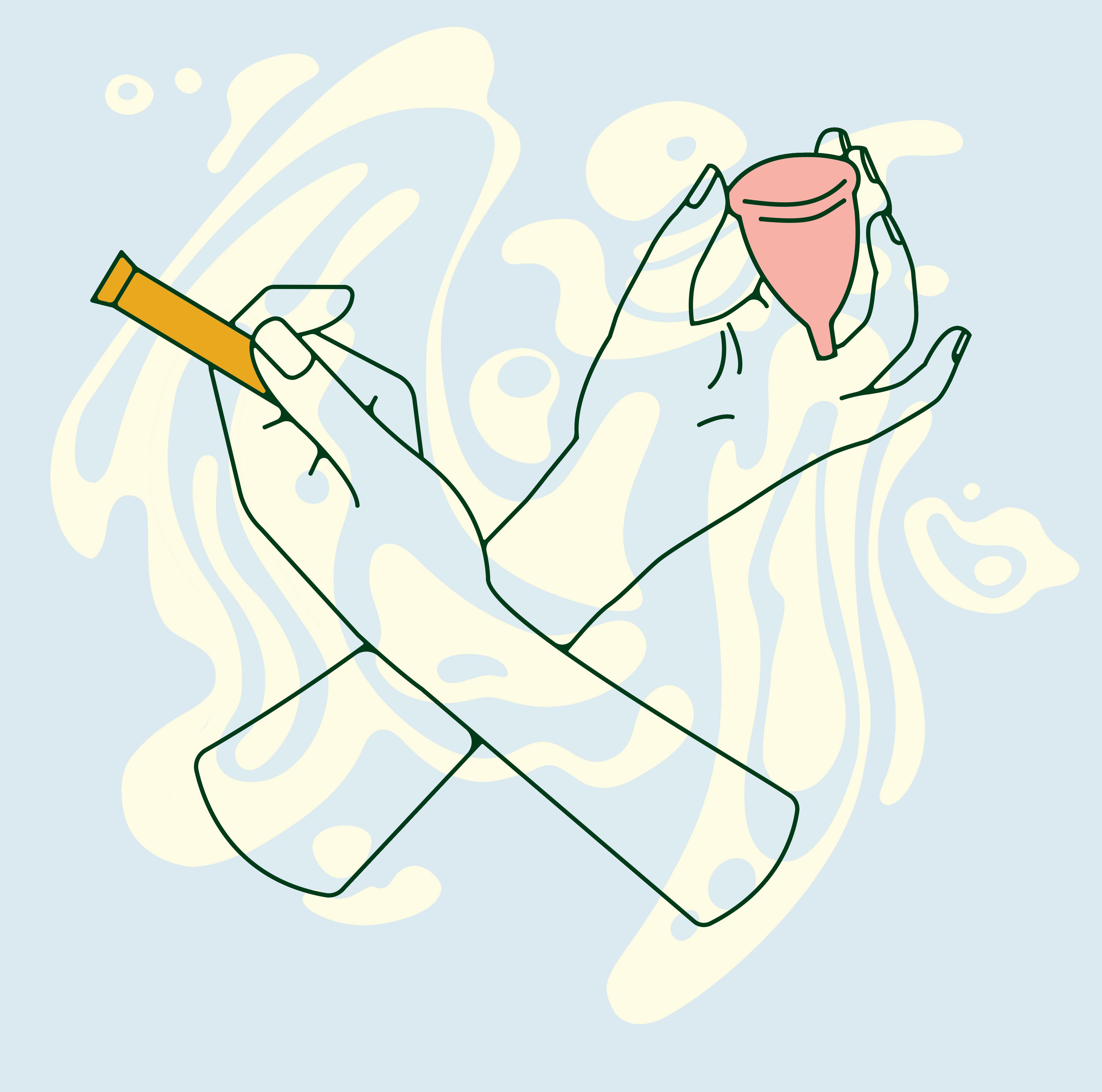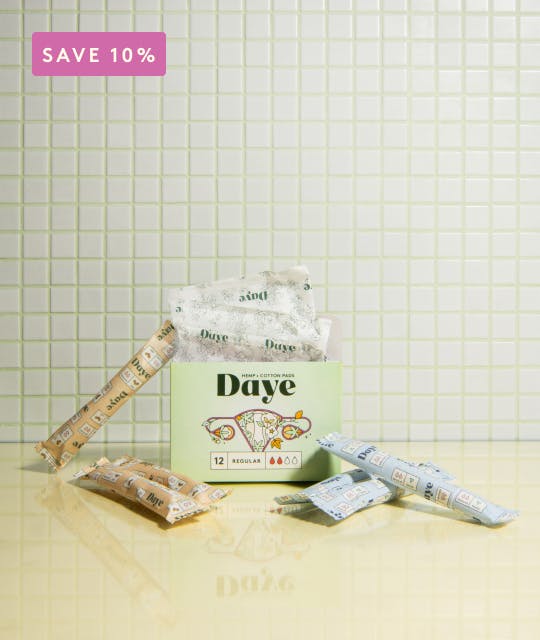Written by Liv Cassano
Illustrated by Erin Rommel
When it comes to period products, one of the most polarising topics is: menstrual cups or tampons? Which one is better?
The truth is there is no “better” option. What period products you use depends on your flow, lifestyle and overall preference.
But if you’re trying to decide, we put menstrual cups and Daye tampons to the test and compared them to one another.
Sustainability
The main reason most people switch to cups is because they’re touted as the more sustainable alternative. The UK generates on average 200,000 tonnes of sanitary waste every year, so it’s understandable why you might want to opt for a reusable option.
90% of mainstream tampons are made of plastic called rayon, and come packaged in plastic-derived packaging. As a disposable product, the nature of tampons means after one use they all get chucked out. So yes, compared to most tampons, menstrual cups are definitely the more eco-friendly option.
However, most menstrual cups are made of medical-grade silicone, which is not biodegradable and very difficult to recycle. While you may be producing less waste month in, month out, at the end of your cup’s life it will still end up in landfill.
It’s also worth taking into account the potential carbon footprint generated by the production of menstrual cups (ie. the amount of energy and resources needed to make a cup, and the waste those produce).
Unlike mainstream tampons, Daye tampons are made of organic, dye and pesticide-free cotton—making them biodegradable and even home compostable.
Our bio-based applicators are made from renewable sugarcane, which makes them recyclable (but remember to give them a thorough rinse before throwing them in the recycling bin!), and we’re working on making them compostable. All our packaging is also either recyclable or compostable.
As a CO2-neutral company we also offset all our carbon emissions, drastically reducing our footprint. Because we want to leave an impact, not a trace.
Practicality and comfort
The biggest upside of tampons is the fact that they’re easy to insert and remove. Menstrual cups, on the other hand, require a bit more maintenance.
Tampons are definitely easier to change in a public bathroom, but it’s also true that you probably won’t need to empty your cup as often. Menstrual cups can hold up to 12 hours of flow, so they may be a more convenient option if you have a very heavy flow.
As for leaks? Menstrual cups and tampons are pretty much on the same level (if you insert the cup correctly). We tested the absorbency of Daye tampons and found that they're more absorbent than other organic tampons.
Menstrual cups also require being cleaned between uses, and need to be boiled at the end of your period in order to sterilise them. Daye tampons are already sanitised with gamma rays to eliminate the presence of infection-causing yeasts and bacteria.
As for insertion, menstrual cups have a bit more of a learning curve and not everyone finds them easy to use. And if you have an IUD or IUS, you need to be careful not to tug on the strings when removing your menstrual cup.
A recent study published in Obstetrics & Gynecology followed 1,092 women over a 3-year period and found that the risk of IUD expulsion was 4 times higher if they used menstrual cups. Within 2 years, 23% of the women reported their IUD coming out when using menstrual cups, compared to just 6% for those who didn't use cups. The study is quite small when you compare it to the number of women who safely use menstrual cups around the world, but it's for sure something to keep in mind if you have an IUD or IUS.

Safety and TSS
*Anything* inserted in the vagina presents the risk of toxic shock syndrome (TSS)—but that risk is very, very low.
TSS happens when a bacteria called Staphylococcus aureus produces a certain type of toxin, aptly called Toxic Shock Syndrome Toxin (TSST).
So in order to get TSS, not only do you have to leave a menstrual product in your vagina for long enough, but you also have to have enough Staph bacteria present in your vaginal microbiome to begin with—and very few people check both boxes.
Things like surgery, childbirth, and open wounds are way more likely to give you TSS.
(Menstrual) Health on your terms
Whether you prefer Daye tampons or menstrual cups, the great thing about having alternative options of period care is that you’re free to choose whatever method fits your body, flow and lifestyle best.
How you manage your period is entirely up to you. Not every period care option is doable for everybody—some might not feel comfortable using menstrual cups, while others might prefer going for the benefits of a reusable option.
As long as we’re encouraging everyone to make smart, informed decisions about what period products they’re buying (and putting in their body), there’s no need to glorify one product over another or shame people for what period care solution they choose.
Interested in giving Daye tampons a try? Click here!
Relevant products







